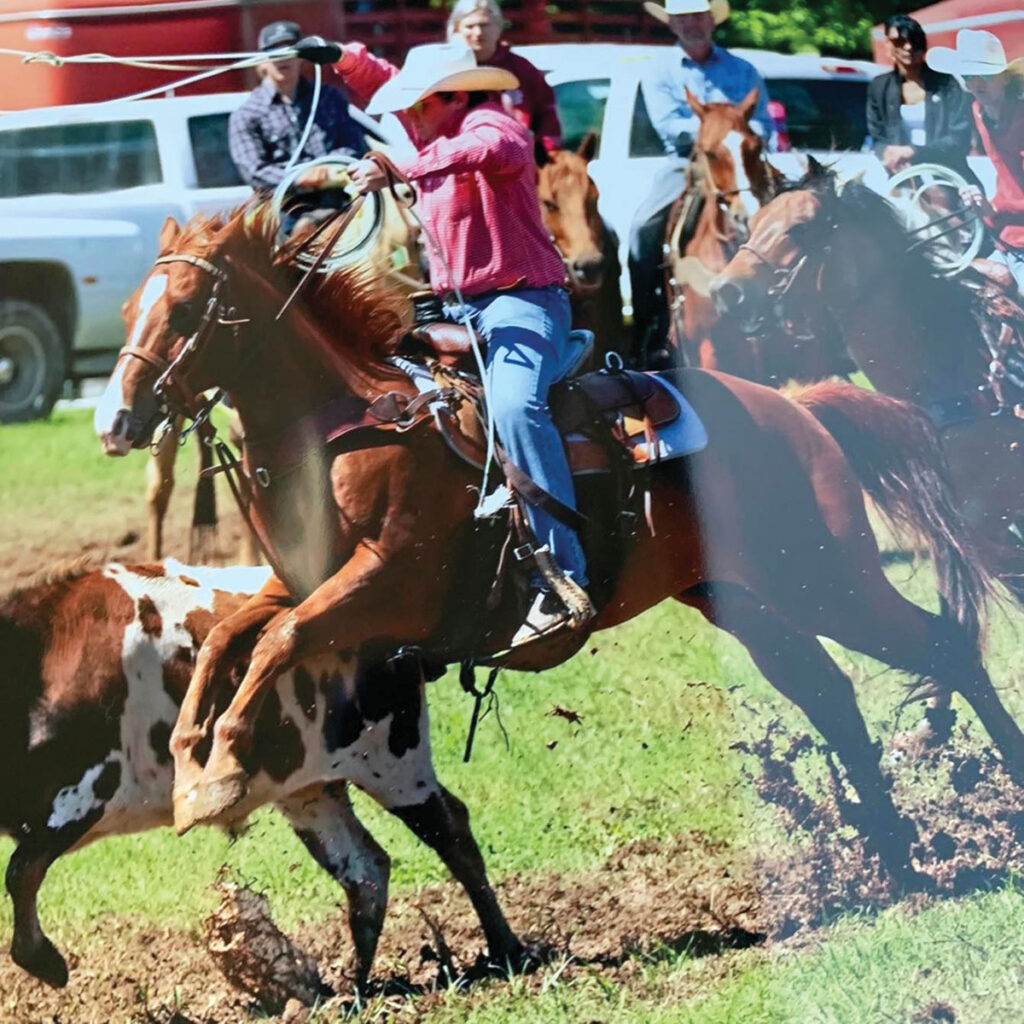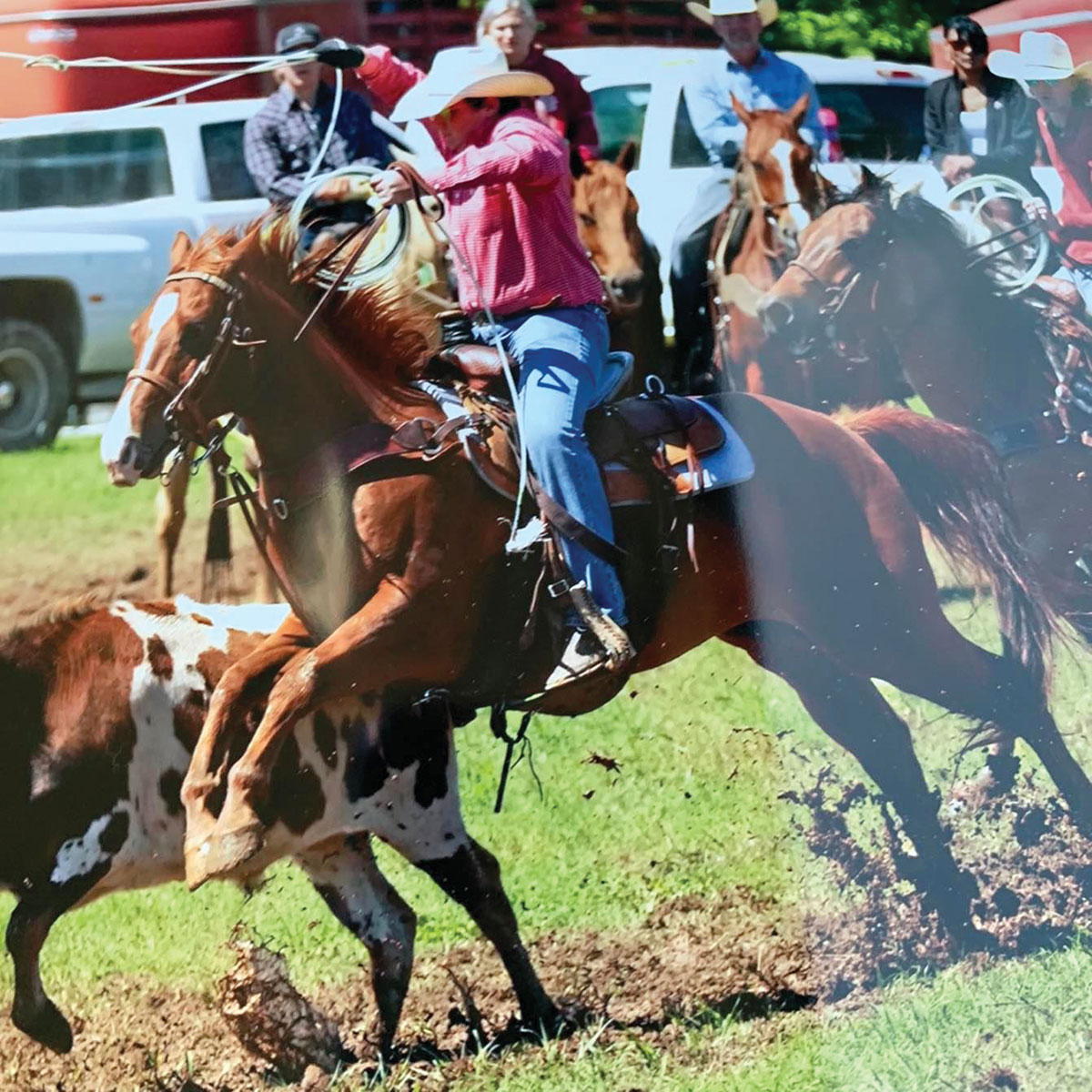
Caden Burden said the cattle industry ‘gets into your blood’
LINCOLN, ARK. – The family farm is an essential part of agriculture in the United States, with roughly 98 percent of farms being family-owned and operated. These farms also provide about 88 percent of agricultural production.
For generations, farm families have included their children in agricultural production. They are taught about the ins and outs of raising animals or growing crops and develop useful skills that will stay with them throughout their life. Aside from the educational experiences, as they grow, youth in agriculture play an essential role on the farm.
One example of how valuable it is to expose young people to the realities of farming is the Burden family. For generations, this family has been raising their children to understand the way of life.
Caden Burden, a sophomore at Lincoln (Ark.) High School, has grown up showing cattle and helping his family manage the farm.
“We background around 400 heifers a year, and we buy in the fall, then sell in the summer,” Caden said. “We buy them as 500-pounders, and we just have to take care of them and grow them big.”
The Burden family farm was dairy operation until 2007. Since then, they’ve been raising Angus crossbreeds to sell at the feedlot and have about 150 head in their cow/calf operation.
“We’ve got a lot of Angus and Brahman crosses, and Angus and Simmental,” Caden said.
Ever since they were old enough to start helping out, Caden and his siblings played an essential role on their farm.
“We’ll buy cows all week, and Friday I usually stay home from school, and we give a total of four shots to every calf, then ear tags and wormer,” Caden said.
There is something to get done from early in the morning until bedtime. There’s an unspoken understanding that the animals depend on Caden and his family. His parents have emphasized how the animals eat before they do.
“I wake up, usually, at 5:30, get up and feed the calf I’ve got at the house, then usually go feed horses and see if anything is wrong at my grandparents’, where all the cattle are,” said Caden. “After school, I go home, and a lot of times, I’ll hook up the trailer and pick up a second or third load at the sale barn.”
From the time he was 5 years old, animals have been familiar to him. Unlike others who may not have the privilege to experience growing up on a farm, Caden developed an understanding of what agriculture is and why it’s necessary. After high school, he plans to continue working on the farm alongside his family.
“I’ll probably branch out and do my own thing eventually, but the family farm is always going to come first,” Caden said.
His parents made a point to raise him and his siblings to understand responsibility and ownership. They’ve bid on their cattle, and during show season, they buy and sell to put that money back into their animals.
Caden’s mother, Julie, said one of the values she has tried to instill in her children is knowing where everything comes from. There are numerous benefits that come from teaching our youth about the importance of agriculture. They will know how much the world depends on agricultural production and growth, have environmental consciousness and understand food issues.
“Our lifestyle would be lost if we don’t teach,” Julie said. “[Our youth] needs to know about agriculture.”
Due to the increasing age of the average farmer, there is a possibility of family farms disappearing. The loss of these farms in America is very impactful due to their production rate.
Families who have been operating on land for generations understand the value that comes from their children’s role in their operations. Not only is it valuable to the future of agricultural production, but it teaches them life skills that will stick with them forever. They’ll have unique knowledge which serves a purpose.
“It gets in your blood…we don’t know any other way of life,” said Julie. “Living in town would be boring.”
The future of agriculture relies on our youth. Exposure to the farm lifestyle will allow children to have a better appreciation for food and products that come from agriculture. These priceless experiences have numerous benefits that have the most positive effects on the future.







